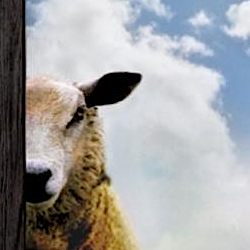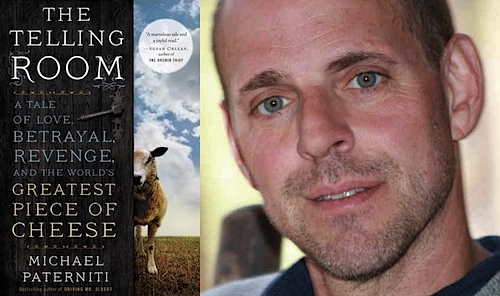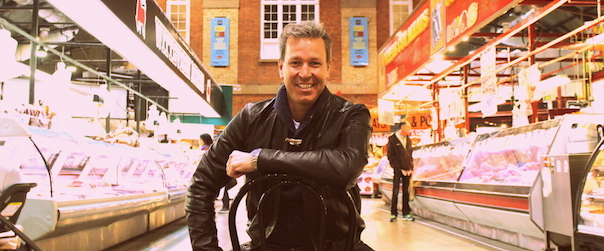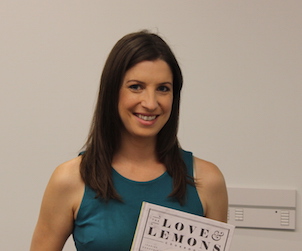Author and journalist Michael Paterniti was in Toronto recently to talk about his bestselling book The Telling Room. The book, which is a memoir and a touching specimen of creative non-fiction, is sub-titled “A Tale of Love, Betreyal, Revenge and the World’s Greatest Piece of Cheese.” The cheese is called Páramo de Guzman, (re)invented in the Castilian village of Guzman, which Paterniti visited periodically, and even brought his family to live in for a while, all under the cheese’s (re)inventor, Ambrosio Molinos. It’s Molinos who is betrayed, when he loses control of the company that makes the cheese, and who seeks revenge. Much of the book is about Paterniti’s decade long struggle to tell Molinos’ story as he forges a deep friendship with the slightly older man. The book is warm, but not overly sentimental, and contains much humour in the author’s account of being a fish out of water in a society he is struggling to understand.
At a dinner at Cava, hosted by McClelland & Stewart President Doug Pepper and attended by myself, Pepper’s editor at the National Post, Ben Errett and visited (for dessert) by foodist luminary Bonnie Stern, I asked Paterniti if in some way the book, which mainly spans his first ten years of being a father, wasn’t in some way really about what it means to be a man. He agreed, although now I think that question might have been too reductive and limiting. Much of what The Telling Room is about, is what it means to be a Western human being in the early 21st Century. Molinos is a strict traditionalist, who recreated his cheese in hopes of capturing the tastes of his ancestors, and Paterniti becomes entranced and enchanted by Molinos’ ‘Old Castillian’ ways. Enchanted enough to go off the grid and try living with his family in rural Spain.
If there is a trend in the contemporary food culture of the English speaking world, that underlies all the other ones from locavorism to degrees of organic and sustainable production, it’s the quest for authenticity. The Telling Room, it seems to me, is very much about what happens when a thoughtful American man takes that quest as far as he can. In the end Paterniti returns to the States and modern life, but keeps his connection to Spain. What makes The Telling Room a fascinating book, in this context, is how Paterniti finds an equilibrium between his two worlds. His balance is uneasy, but is richly rewarding. Most of us who care about food and the culture of the table are likely trying in some way to do the same thing, and we’d do well to study Paterniti’s method.
 Malcolm Jolley is a founding editor of Good Food Revolution and Executive Director of Good Food Media, the company that publishes it. Follow him at twitter.com/malcolmjolley
Malcolm Jolley is a founding editor of Good Food Revolution and Executive Director of Good Food Media, the company that publishes it. Follow him at twitter.com/malcolmjolley








